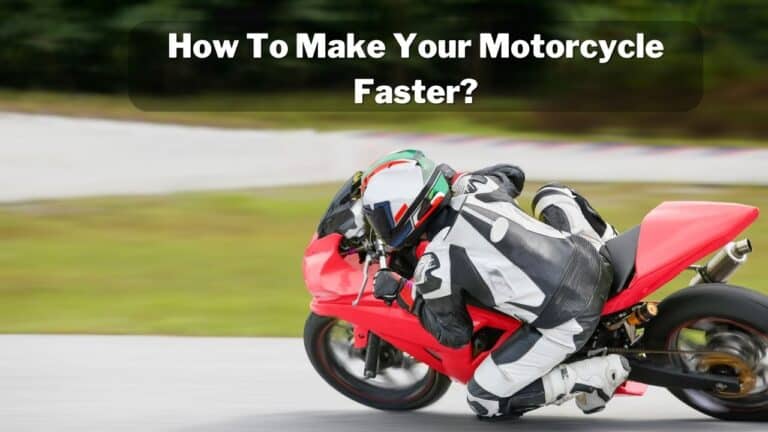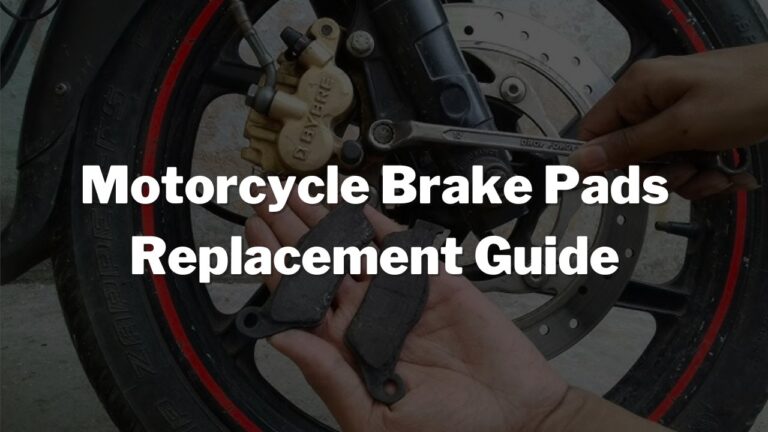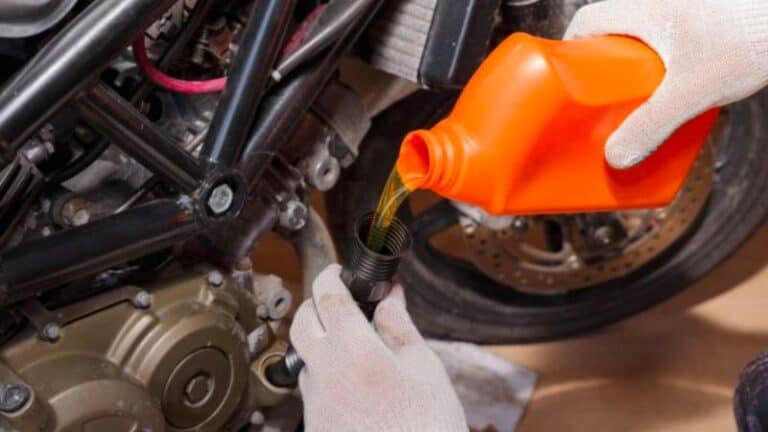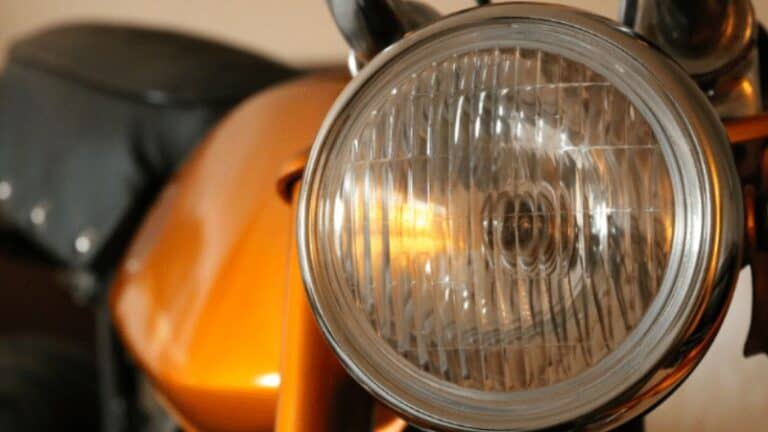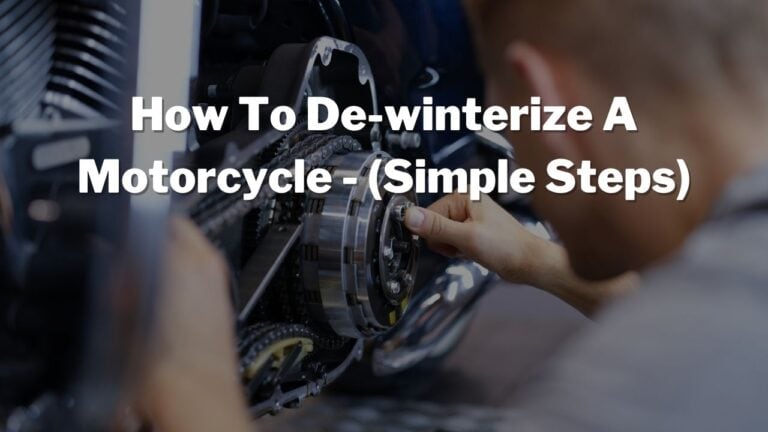6 Signs Of Bad Motorcycle Clutch – (Engineer’s Thoughts)
Is your motorcycle losing power while accelerating or experiencing difficulty in gear shifting? These are the common symptoms of a bad motorcycle clutch. In this guide, we’ll learn everything about motorcycle clutch problems.
Hi, my name is Kevin, and I’m a mechanical engineer. I understand the importance of clutch in automobiles. If your motorcycle’s clutch plates have gone bad, your motorcycle will show some weird symptoms.
So, what are the symptoms of a bad motorcycle clutch? A motorcycle uses a multi-plate clutch system that has a limited life. You’ll experience difficulty shifting gears, clunking sound while shifting or jerking, reduced gas mileage, and hard gear shifting. Your motorcycle seems to lose power while accelerating if the clutch plates are burned.
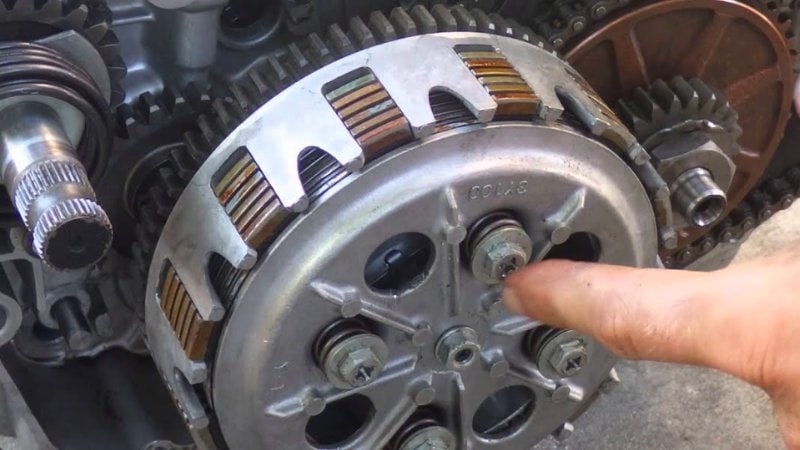
Table of Contents
How To Tell If Your Motorcycle Clutch Is Bad
The function of a clutch is to disengage the gearbox from the crankshaft for smoother shifting. If the clutch plates have gone bad, you’ll notice the following symptoms-
1. Hard Gear Shifting
Pulling the clutch lever, the clutch plates are disengaged with the crankshaft, making gear shifting smoother. But, if the clutch system goes bad, the first symptom you’ll notice is hard gear shifting.
It happens because the crankshaft will not disengage with the gearbox, and you face difficulty shifting gears. To fix this, you need to inspect your friction plates and pressure plate of the clutch system and replace them if worn.
Also Read: What is clutch drag on a motorcycle
2. Jerking
Another sign of a bad clutch system is your motorcycle will jerk when you put it in first gear. However, this also occurs if the clutch wire is defective or has excessive free play.
So, if you notice a jerk on your motorcycle while putting in the first or second gear, please adjust the freeplay. If you haven’t replaced the clutch wire in the last six months, please replace it.
Click here to check the price of clutch cable replacement on Amazon
3. Reduced Gas Mileage
If you notice the sudden drop in gas mileage, it could be due to a bad clutch system. Your clutch system has 5 to 6 friction plates that stick with steel plates when you release the clutch lever. However, over time, the abrasive material wears and decreases plate friction.
If there is insufficient friction between both plates, some power loss occurs, resulting in dropped gas mileage. So, if you notice a drastic drop in gas mileage, please go for clutch plate replacement.
4. Poor Acceleration
Another common symptom of a bad clutch system is poor acceleration. Although the engine revs at high rpm, your motorcycle loses power while accelerating because of clutch slippage.
I have written an in-depth guide that causes poor acceleration on motorcycles. You should read that.
5. Can’t Put Into Gear
Your motorcycle oil lubricates all moving parts and keeps the clutch system cool. But, due to low engine oil levels, clutch plates (friction and steel plates) overheat and stick together.
In this case, the gearbox shaft rotates as fast as the crankshaft because clutch plates are burnt and fused together. So, you’ll face difficulty while putting your motorcycle in the first gear.
Even if you press the gear shifter forcefully, your motorcycle will not go into first gear. This is another sign of a bad motorcycle clutch.
6. Clunking Sound While Shifting
Sometimes, you’ll notice a clunking sound while shifting the gear. This is an indication of a bad clutch system.
It happens because your gearbox doesn’t disengage with the crankshaft, and engine power hits gear teeth. To fix this, replace the clutch cable and adjust the free play.
Also Read: What Happens When You Put Too Much Oil in Motorcycles?
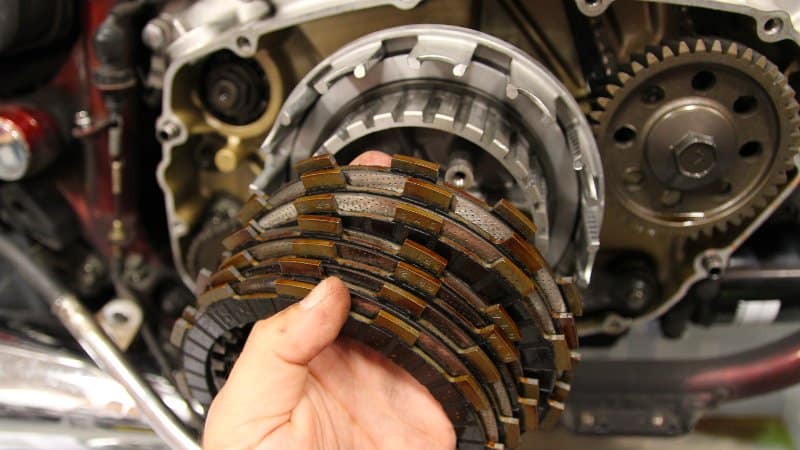
How Long Does Motorcycle Clutch Plates Last
Now you know the various signs and symptoms of a bad motorcycle clutch. But you must know the average lifespan of motorcycle clutch plates.
Generally, a motorcycle’s clutch plates last between 20,000 and 50,000 miles, depending on your riding style.
If you frequently pull the clutch lever, friction plates wear fast. Also, riding on half clutch increases the wear rate, and your clutch system fails faster.
How To Make Clutch Last Longer
If you want to make your motorcycle clutch last longer, use the right grade of engine oil and maintain its optimum level.
Apart from that, don’t ride your motorcycle on a half-clutch. Because when you ride on the clutch lever partially pulled, the friction plates wear faster.
To increase the lifespan, adjust the free play every weekend. Otherwise, when you pull the clutch lever, the friction plates will not disengage completely and wear faster.
What Causes A Motorcycle Clutch Plate To Burn
The motorcycles use wet clutch plates that cool with engine oil. If you fill poor quality engine oil, it evaporates faster, and your motorcycle will overheat. Due to overheating, the friction plates burn.
So, if your clutch plates are frequently burning, please check the engine oil grade and top-up whenever the level drops.
What Is Clutch Slipping?
As I told you earlier, a clutch system is an assembly of a friction plate, pressure plate, and several springs. The pressure plates and springs apply force on the friction plates, which engage with the crankshaft.
Over time, the frictional force decreases due to wear or the spring failing to apply sufficient pressure, and the friction plates slip and fail to transfer power to the gearbox. This condition is called clutch slipping.
Similar Guide: 6 Reasons Why A Motorcycle Accelerates On Its Own
What Does Motorcycle Clutch Slipping Feel Like?
If your engine revolves at higher rpm, but the motorcycle seems to lose power, this is the first sign of clutch slipping. This condition occurs when riding uphill, or your motorcycle has a heavy load. You must adjust the free play and replace the clutch plates to fix the clutch slipping.
Conclusion
If your motorcycle shows any of the above symptoms, please take it to a professional mechanic. He will inspect and replace the clutch plate assembly, and your motorcycle will run smoother.
I hope you found this article helpful. Please share your valuable feedback in the comment box.
